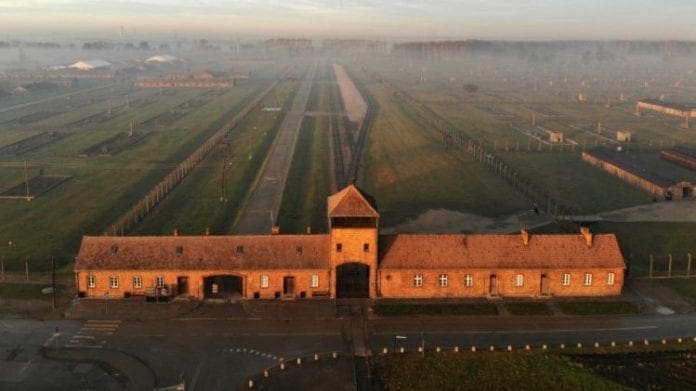Listen to this BosNewsLife News report via Vatican Radio:
By BosNewsLife News Center with reporting by BosNewsLife’s Stefan J. Bos
WARSAW/BUDAPEST (BosNewsLife)– Amid political upheaval, world leaders will gather twice to mark the 75th anniversary of the liberation of Auschwitz-Birkenau, the most notorious of Nazi Germany’s death camps. There will be two competing ceremonies — one in Jerusalem on Thursday and the other at the Auschwitz site in southern Poland on Monday. They come amid tensions between Russia and Poland over World War II on how to interpret the past.
As winter sets in, U.S. House Speaker Nancy Pelosi led a congressional delegation to the Auschwitz memorial site in Poland. Her visit came ahead of the 75th anniversary of the day that Soviet troops liberated one of the worst death camps of World War Two.
From 1940-45, some 1.1 million people died here. Most of them were Jews from across Europe. But there were also Poles, Roma and Russian prisoners of war, who died.
They and the Jewish people were shot to death, killed in gas chambers, or died of starvation or another mistreatment here at Auschwitz-Birkenau.
The Red Army liberated the camp on January 27, 1945. Its an event now observed annually as International Holocaust Remembrance Day. In total, some 6 million Jews were killed in the Holocaust or Shoah.
BITTER DISPUTE
Yet the commemorations risk being overshadowed by a bitter dispute between Poland — where Nazi German occupiers operated Auschwitz and other infamous camps — and Russia, the successor state to the Soviet Union.
Poland recalled that the Soviet Union signed a nonaggression accord with the Nazis shortly before the war began in 1939, known as the
Molotov-Ribbentrop pact. It contained a secret protocol in which the totalitarian powers agreed to carve up Eastern Europe.
Two years later, Germany turned on Kremlin leader Josef Stalin and invaded the Soviet Union. That brought the Soviets into the war on the side of the Allies.
Millions of Red Army soldiers lost their lives in the eventual defeat of Adolf Hitler’s Germany. But Russian President Vladimir Putin has sought to shift wartime blame to Poland. He is angry that historical memory in the West has begun to focus more on the Soviet role in triggering the war and less on its role in defeating Germany.
But that outraged the Polish government, which believes Putin’s main motive is to weaken Polish influence in the European Union.
EU ANGRY
The Europen Union’s executive European Commission agrees with Poland. The EU’s Justice Commissioner Vera Jourova told the European Parliament that she does not accept Russia’s arguments. “If one member state is singled out in efforts to distort
its historical role, the European Commission would always protest and counter disinformation and fake information. While preserving freedom of the press and the media journalist, ” she said.
“Allow me to express the hope that as we approach the 75th anniversary of the end of that worst war in the history of humanity, we will not see the multiplication of efforts to distort the history of the event and to mask victims as perpetrators,” Jourova added.
Amid the bitter Russian-Polish disagreement over the history of the beginning of World War II, Poland’s President Andrzej Duda is due to skipping a significant Holocaust memorial in Jerusalem. He is angry that he was invited to speak at the event.
But spokesman Simmy Allen of the memorial site, known as Yad Vashem, defends that decision. “Yad Vashem is here to ensure that the Holocaust remembrance remains outside the world of politics.”









